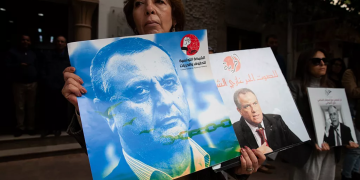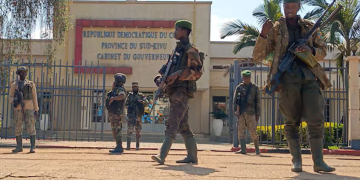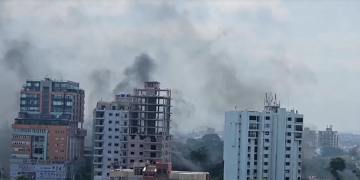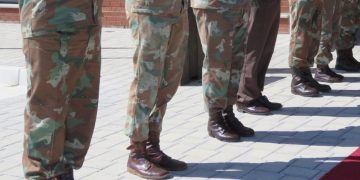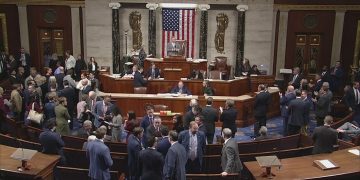In a significant development, US President-elect Donald Trump announced that preparations are underway for a meeting with Russian President Vladimir Putin aimed at addressing the ongoing war in Ukraine.
During a recent gathering at his Mar-a-Lago estate, Trump emphasized the urgency of the situation, stating, “President Putin wants us to meet; he’s even said so publicly, and we need to end this war, which is a real mess.”
A Call for Peace Amidst Turmoil
Trump’s remarks come just days before his inauguration on January 20, 2025, and reflect his campaign promise to work towards peace in Ukraine, a country that has been embroiled in conflict since Russia’s invasion in February 2022.
The president-elect described the situation as a “bloody disaster” and highlighted the need for immediate action.
On December 19, Putin expressed his willingness to meet with Trump “at any time,” indicating a potential opening for dialogue between the two leaders.
Kremlin spokesperson Dmitry Peskov welcomed Trump’s interest but noted that no formal requests had been made yet.
Concerns Over Concessions
While Trump has called for an “immediate ceasefire” and negotiations, there are rising concerns among Ukrainian officials and European allies about what this could mean for Ukraine’s sovereignty.
Critics fear that Trump’s approach may pressure Kyiv into making significant concessions to Russia, potentially handing Moscow a geopolitical victory.
Ukrainian President Volodymyr Zelenskyy has voiced apprehension regarding Trump’s involvement, suggesting that it could significantly influence the outcome of the war.
In recent comments, Zelenskyy indicated that NATO security guarantees might be necessary to stabilize the situation.
The Stakes of Negotiation
As discussions of a potential meeting unfold, questions arise about what terms might be on the table.
Reports suggest that Trump’s team is contemplating proposals that could involve freezing front lines and delaying Ukraine’s NATO accession by two decades. However, these ideas have already faced rejection from Russian officials.
The stakes are high, as approximately 20% of Ukrainian territory remains under Russian occupation.
As Trump prepares to take office, the international community watches closely to see how his administration will navigate this complex geopolitical landscape.
A Pivotal Moment for Ukraine
The prospect of a Trump-Putin meeting raises critical questions about the future of Ukraine and its ongoing struggle against Russian aggression.
Will Trump’s approach lead to meaningful negotiations and an end to hostilities, or will it exacerbate existing tensions?
As both leaders prepare for potential discussions, the world awaits clarity on their intentions and the implications for global stability.
The outcome of this engagement could redefine not only U.S.-Russia relations but also the very fabric of European security in the years to come.





